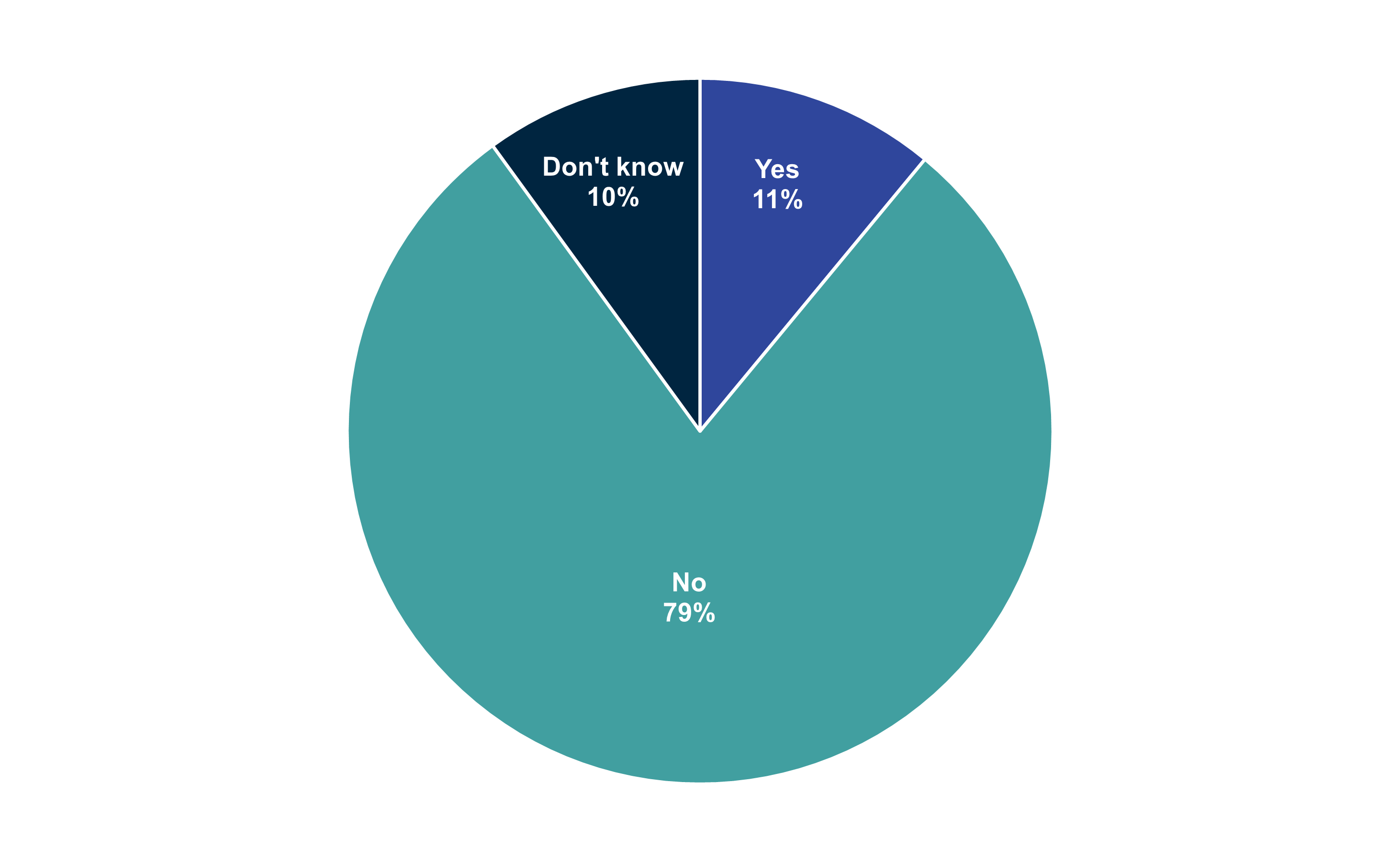Report
Young People and Gambling 2023: Official statistics
Gambling Commission report produced by Ipsos on young people and their gambling behaviour, attitudes and awareness in 2023.
Contents
- Executive summary
- Young people’s active involvement in gambling
- Experience of gambling
- The Impact of gambling on young people
- Online gambling
- National Lottery play
- Games and gaming machines
- The Context for gambling participation
- Attitudes towards and exposure to gambling
-
- Summary
- Young people's views on gambling
- Feeling informed about gambling
- Being stopped from gambling
- Young people's exposure to gambling adverts and promotions and frequency of exposure
- Content of gambling adverts and promotions seen
- Whether ever prompted to gamble by adverts and promotions
- Following gambling companies on social media
- Appendices
- List of gambling activities and definitions
Awareness and use of virtual money or tokens to bet on sports matches
Figure 15: Whether young people have ever used apps or websites which allow them to use virtual money or tokens to bet on sports matches

Figure 15 information
GC_SPORTSBET. Have you ever used apps or websites which allow you to use virtual money or tokens to bet on sports matches?
Base: All participants answering (2,852).
| Experience using apps to use virtual money or tokens to bet on sports matches | Percentage |
|---|---|
| Yes | 11% |
| No | 79% |
| Don't know | 10% |
To further explore the way in which young people engage online, they were asked if they had ever used apps or websites which allow them to use virtual money or tokens to bet on sports matches. One in ten (11 percent) of young people have experienced using virtual money in apps and on websites to bet on sports matches.
Boys were more likely (14 percent) to have had experience with these apps and websites than girls (7 percent). Additionally, respondents being identified as ‘at risk’ on the youth adapted problem gambling screen Diagnostic and Statistical Manual of Mental Disorders 4th Edition - Multiple Response Juvenile (DSM-IV-MR-J) were more likely (26 percent) to have had experience with these apps and websites than those identified as ‘non-gamblers’ (9 percent).
Previous sectionAwareness and use of in-game items in video games
Last updated: 16 November 2023
Show updates to this content
No changes to show.
